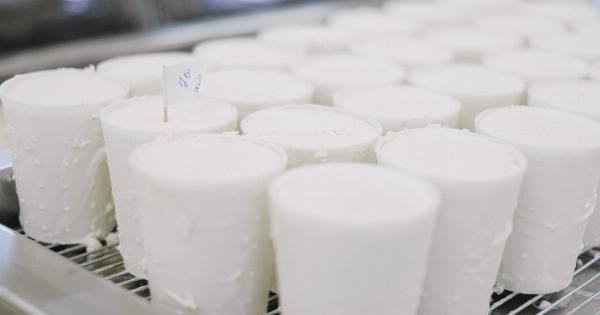Breastfeeding is one of the most rewarding experiences for both mothers and their babies.
Breast milk is packed with nutrients that can help boost the baby’s immune system, improve cognitive development, and reduce the risk of chronic diseases such as diabetes and obesity.
However, as a breastfeeding mother, you need to be mindful of the foods you consume.
Some foods and drinks can affect the quality and amount of breast milk you produce, while others can transfer to your baby through your milk and may cause discomfort or allergic reactions.
Alcohol
Alcohol consumption during breastfeeding is discouraged. Alcohol can pass through breast milk, and even small amounts can affect the baby’s motor skills and sleep pattern.
If you decide to drink, wait at least two hours after drinking before nursing to allow sufficient time for your system to metabolize alcohol. Alternatively, you may choose to pump and store breast milk before drinking, but this may not be feasible for some mothers.
Caffeine
Caffeine is another stimulant that can pass through breast milk.
Although moderate caffeine intake of two to three cups of coffee a day is considered safe for most breastfeeding mothers, some babies may be more sensitive to caffeine and may experience insomnia, fussiness, or rapid heart rate. To play it safe, monitor your baby’s reactions or switch to decaf or herbal tea.
Fish
Fish contains omega-3 fatty acids that are crucial for brain and eye development in babies. However, some types of fish may contain high levels of toxins such as mercury and polychlorinated biphenyls (PCBs) that can harm the baby’s nervous system.
Avoid shark, swordfish, king mackerel, and tilefish, which are known to have high mercury levels, and limit intake of albacore tuna to six ounces a week. Instead, opt for low-mercury fish such as salmon, sardines, and trout.
Dairy
While many babies tolerate dairy products well, some may be sensitive to cow’s milk protein and may experience colic, rash, or diarrhea.
If you notice any of these symptoms after consuming dairy, eliminate it from your diet for a few weeks and see if your baby’s condition improves. Consider alternative sources of calcium such as dark leafy greens, fortified plant-based milk, and calcium supplements.
Eggs
Eggs are a good source of protein and other vital nutrients, but some babies may develop allergic reactions to egg whites or yolks. Symptoms may include hives, vomiting, or difficulty breathing.
If you suspect your baby is allergic to eggs, avoid consuming them until you consult your pediatrician.
Nuts
Tree nuts such as almonds, walnuts, and pecans, as well as peanuts, are highly allergenic and may cause severe reactions in some babies.
If there is a history of nut allergy in your family or if you notice any signs of allergic reactions, such as swelling or difficulty breathing, avoid consuming nuts and products that contain nuts. Read labels carefully, as many processed foods and sauces may contain hidden ingredients that can trigger allergies.
Soy
Soy products, including soy milk, tofu, and edamame, are a common source of plant-based protein for vegetarians and vegans. However, soy may affect the hormonal balance in some breastfeeding mothers and lead to fussiness, gas, or bloating in babies.
If you suspect soy is causing issues, try eliminating it for a few weeks and see if your baby’s condition improves.
Spicy foods
Spicy foods such as chili peppers, hot sauce, and curry may cause irritation in some babies’ digestive systems and may even affect the taste of breast milk.
If you notice any discomfort or refusal to nurse after consuming spicy foods, consider reducing or eliminating them altogether.
Citrus fruits
Citrus fruits such as oranges, lemons, and grapefruits are rich in vitamin C, but some babies may develop acid reflux or diaper rash if their mothers consume large quantities.
If you enjoy citrus fruits, try consuming them in moderation and watch for any negative reactions in your baby.
Chocolate
Chocolate contains caffeine and theobromine, which can affect the baby’s sleep patterns and cause fussiness or colic. In addition, some babies may be sensitive to chocolate and develop rashes or digestive issues.
If you crave chocolate, opt for dark chocolate with lower sugar and caffeine content, or consume it in moderation.
In summary, while it is essential to maintain a healthy and balanced diet while breastfeeding, be mindful of the foods you consume and their potential effects on your baby.
Consult your pediatrician if you suspect your baby is allergic or intolerant to specific foods, or if you have any concerns regarding your breastfeeding diet.





























